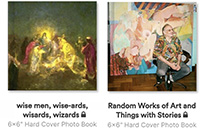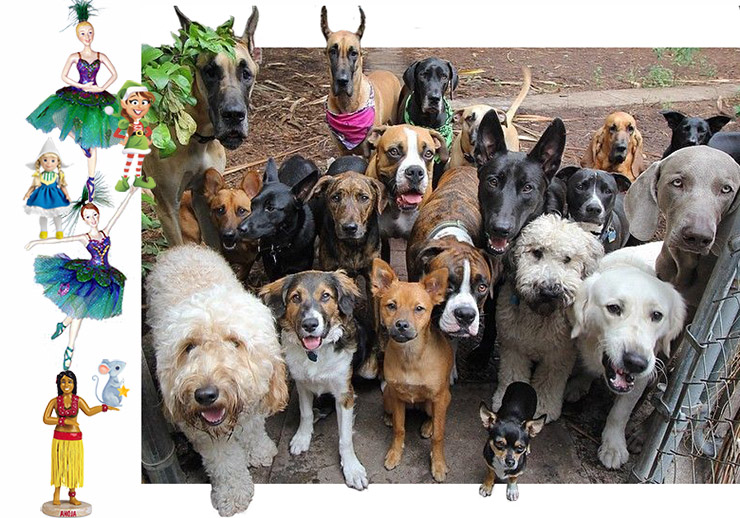Most of us cheer for the little dog that doesn’t have a chance. The underdog.
We like them because they need us.
Underdogs are those little dogs that rise above their circumstances and overcome their disadvantages. It is the underdog we see in our mind when we say, “It’s not the size of the dog in the fight that matters; it’s the size of the fight in the dog.”
Underdogs do the best they can. They push and struggle and hope for a brighter future. They remind us of ourselves.
“The scientific literature suggests that fans of losing teams turn out to be better decision-makers and deal better with divergent thought, as opposed to the unreflective fans of winning teams.”
– Dr. Jordan Grafman, a researcher at the National Institute of Neurological Disorders (2011)
That’s interesting, don’t you think? People who cheer for little David in his fight against big Goliath are reflective, good decision-makers, and unafraid to think new thoughts.
We cheer for the underdog, always and forever. We go out of minds with ecstasy when the underdog finally wins. That’s our dog! We look at each other and we know, “That little dog is you and me.”
The underdog is a cultural hero.
“How do human beings put into words their ideas about the meaning of human life? How do they convey through art and religion their beliefs about the significance of human life? They do it partly by investing in certain transcultural stories, like the one about the adventures of a culture hero, which, after a period of trial and hardship, always ends in triumph.”
– Barry Lopez, Horizons, page 323
Do you know what has me concerned?
The United States began as a nation of underdogs, but it took us barely 10 generations to become a nation of overdogs, victors, champions, and our values have changed because of it.
Today we believe, “Winning isn’t everything; it’s the only thing.“
We want more subscribers, more influence, more likes, more admirers, more fame, and more money. How much is enough? “Just a little bit more.”
I suspect Louis Menand was contemplating all of this in June, 2011 when he wrote:
“In a society that encourages its members to pursue the career paths that promise the greatest personal or financial rewards, people will, given a choice, learn only what they need to know for success. They will have no incentive to acquire the knowledge and skills important for life as an informed citizen, or as a reflective and culturally literate human being.”
Wouldn’t it be great to have a nation – and a government – of people who were informed citizens and reflective, culturally literate human beings?
Wouldn’t that be great?
Roy H. Williams

I spent 114 hours creating these two books for guests who will attend the Wizard Academy Reunion on October 28. “Wise Men, Wise-ards, Wisards, Wizards” is 143 pages of my favorite depictions of the namesakes of Wizard Academy, the wise men – the magi – of Matthew chapter 2. The book is filled with paintings and sculptures spanning more than 1,000 years, along with images of the artists who created them. It is my Mom’s favorite book of the 114 different Chatbooks I have made. Be at the reunion and take these gifts from me home with you. “Random Works of Art and Things with Stories” is a second 98-page book you will take home full of carefully curated paintings, photographs, stories and poems you have probably never seen or heard. Fascinating in every way. The first book costs me $53.90 per copy to print in full-color hardback. The second book cost $40.40 to print, and then there is the $4.99 shipping fee. Both of these books are important to me. And so are you. – Roy
 Curt Tueffert has spent four decades helping people enjoy world-class sales success. When it comes to selling, Curt has seen it all, done it all. Qualify customer prospects, help them past their hesitations, and never feel rejection when rejected: Curt can tell you how. According to roving reporter Rotbart, this week’s episode will instantly boost your batting average in the great game of selling. MondayMorningRadio.com
Curt Tueffert has spent four decades helping people enjoy world-class sales success. When it comes to selling, Curt has seen it all, done it all. Qualify customer prospects, help them past their hesitations, and never feel rejection when rejected: Curt can tell you how. According to roving reporter Rotbart, this week’s episode will instantly boost your batting average in the great game of selling. MondayMorningRadio.com
